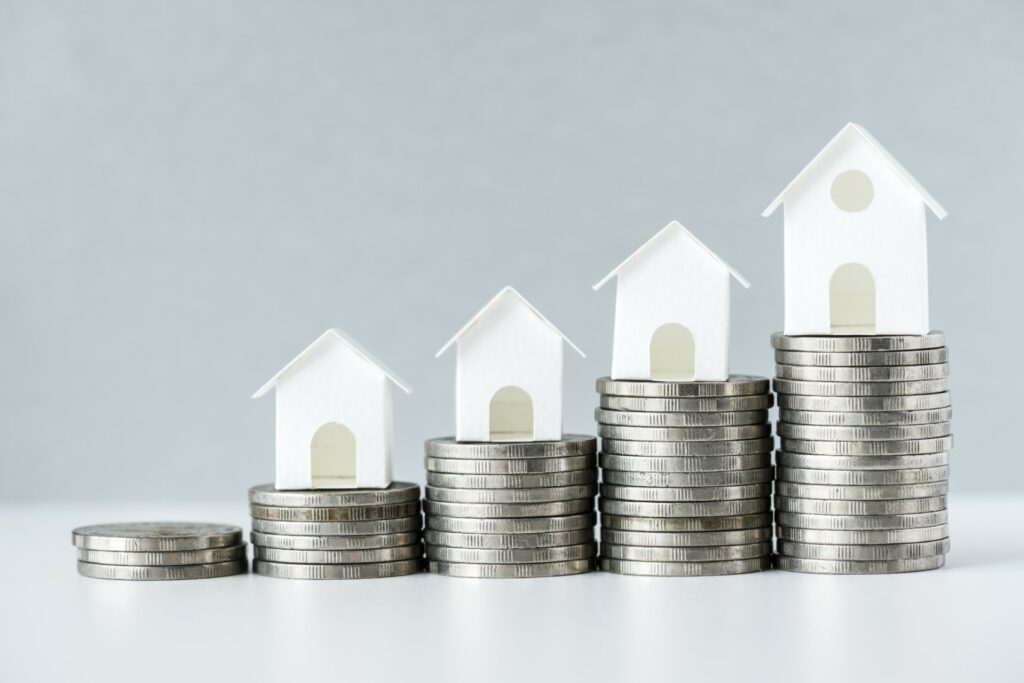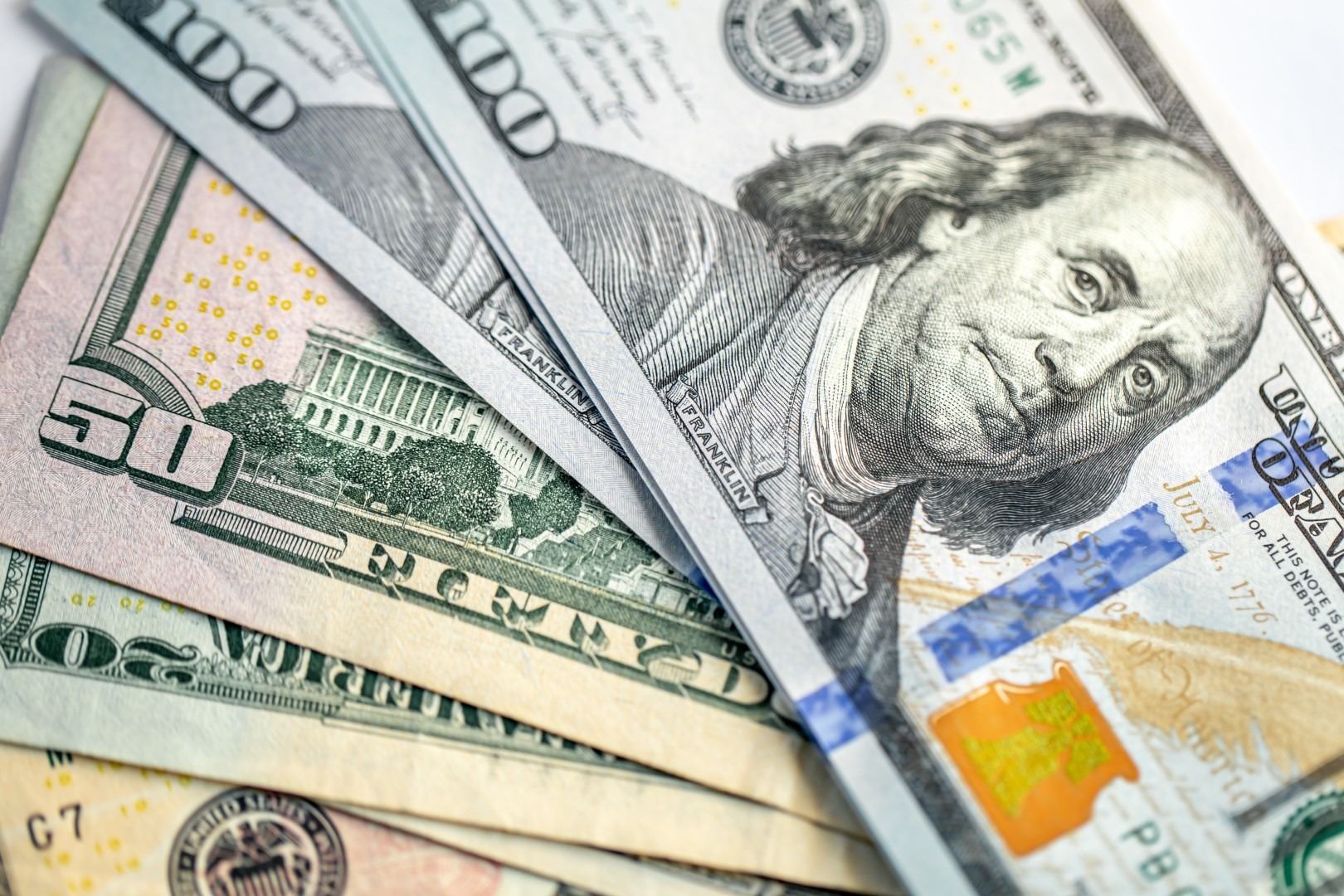In the ever-changing world of real estate investing, the strength of the U.S. dollar can be a game-changer. For foreign nationals eyeing the U.S. residential property market, understanding the implications of a strong or weak dollar is crucial to making informed investment decisions and financing.
If you’ve ever found yourself wondering how currency fluctuations might impact your property investments, you’re not alone. Whether it’s a period of a robust dollar making properties appear more expensive or a weak dollar potentially offering attractive opportunities, these currency shifts play a significant role in how foreign investors can better navigate American real estate market.
In this blog post, we’ll unravel the complexities of investing during periods of different currency strengths. We’ll explore how these scenarios influence property prices and investment returns, and highlight strategies you can employ to navigate these financial waters successfully.
Remember, whether the dollar is flexing its muscles or taking a breather, there are always opportunities in the U.S. Real Estate market. Its all about knowing where to look and when to act.
Understanding the U.S. Dollar
The dollar is more than just America’s national currency. It is also the world’s primary reserve currency, a title it has held for over six decades. But what does this actually mean?
Being the world’s reserve currency essentially means the dollar is at the center of most businesses on Earth. For instance, if you’re a company in Japan wanting to buy oil from Saudi Arabia, the transaction will likely be conducted in dollars.
The prominence of the dollar extends beyond commodities. It is the preferred currency for international reserves, meaning that central banks across the globe hold significant quantities of dollars to pay off international debts or influence their domestic exchange rate.
This status of the dollar was solidified by the Bretton Woods Agreement of 1944, where it was backed by the world’s largest gold reserves. Although the gold standard has since been abandoned, the dollar’s position as the dominant global currency remains.
Factors Influencing the Strength or Weakness of the Dollar
Various elements can impact the strength or weakness of the dollar. Some of these include:
Interest Rates
Interest rates set by the Federal Reserve (or the ‘Fed’) can have a significant impact on the value of the dollar. If the Fed raises interest rates, this can increase the value of the dollar as foreign nationals may decide to invest in the U.S. to gain higher returns, increasing demand for the currency.
Foreign Currencies
The value of the dollar is also influenced by the performance of other currencies. For example, if the British pound in Europe, the Yuan in China, or the Japanese yen strengthen, this could potentially weaken the dollar as investors move their assets into these currencies.
Economic Stability
The USD is often viewed as a ‘safe haven’ currency. This means that in times of global economic and political uncertainty, investors tend to flock to the dollar as it is seen as a stable store of value. This can strengthen the dollar relative to other currencies.
How a Strong Dollar Impacts Investors
When the dollar is strong, it holds more purchasing power compared to other currencies. This can impact both foreign and U.S. investors in several ways.
Property Prices and Investment Returns
A strong dollar can make U.S. property appear more expensive to foreigners. This is because they need more of their own currency to buy the same amount of dollars. Consequently, the cost of investing in U.S. property increases, potentially leading to reduced demand from buyers from other countries and less competition.
However, it’s not all bad news. A strong dollar can also mean that imported goods become cheaper while exports become less expensive. This can help to tame inflation and, for example, make construction materials more affordable, potentially lowering the costs of property development. For rental properties, this can also mean a significant increase in the rental income you are getting from your investment property, especially when you convert it to you local currency.
Opportunities for Foreign Investors

Despite the potential increase in property prices, a strong USD can present opportunities for foreign nationals. The U.S. is often seen as a safe haven for investment, especially during times of global economic uncertainty. When the dollar is strong, it signals stability and confidence in the U.S. economy, making it an attractive destination for real estate investment.
Foreign nationals can potentially get higher returns in the U.S. than in their own domestic markets, even with a strong dollar. They may also see it as an opportunity to diversify their portfolio, spreading their risk across different markets and asset classes.
- Extracting Equity When the Dollar is High: When the U.S. dollar is robust, foreign investors may find it an opportune time to extract equity from their existing U.S. real estate investments. This strategy allows investors to convert their property’s appreciated value into cash, which they can then utilize for other investment opportunities or financial needs. This approach can also serve as a hedge against currency fluctuations, enabling investors to lock in gains when the dollar is strong. However, it’s essential to carefully consider the potential tax implications and consult with an expert before proceeding.
- Cash-Out Refinance as an Opportunity: Another avenue foreign nationals can explore during periods of a strong dollar is cash-out refinancing. This involves refinancing an all-cash purchase or an existing mortgage with a new loan of a higher amount and taking the difference in cash. The increased liquidity can provide additional capital for further real estate investments, thereby diversifying their portfolio. Nevertheless, it’s crucial to evaluate the potential benefits and risks thoroughly. As always, obtaining professional advice is recommended to make informed decisions.
Case Study: Investing in U.S. Residential Rental Property During a Strong Dollar Period
Consider a scenario where a foreign national decides to invest in U.S. rental property during a period of a strong dollar. Despite the higher upfront costs due to the dollar strength, the investor sees potential for significant rental income and the opportunity for property appreciation over time.
The investor leverages a competitive financing strategy to purchase the property. They understand that while the cost of the investment may be high over the short-term, the long-term returns could be substantial, especially if the dollar weakens in the future and the value of the property increases.
This is because real estate tends to appreciate over time. If the dollar weakens in the future, the value of the property in foreign currency terms would increase even further. This could lead to substantial returns when the property is sold or rented out.
How a Weak Dollar Impacts Investors
When the dollar weakens relative to other currencies, it can create a unique set of circumstances in the property market.
In the broadest sense, a weak dollar makes U.S. goods, including residential rental property, less expensive for foreign buyers. This is because when the value of the dollar drops, the purchasing power for foreigners increases. Simply put, they get more bang for their buck.
Impact on Property Prices and Investment Returns
A weak dollar can lead to more attractive pricing for foreign nationals. As the value of the dollar declines, property prices in the country effectively become more affordable for those holding stronger foreign currencies. This affordability can potentially lead to increased demand, and in some cases, drive up property prices over time.
Opportunities for Foreign Investors
One of the key advantages of investing during this period is the potential for increased purchasing power. With more dollars at their disposal, foreigners may be able to acquire larger or more numerous properties, thereby expanding their investment portfolio.
Another potential advantage is the impact on return on investment (ROI). If the dollar strengthens after the property purchase, the value of the rental income and eventual sale proceeds may increase when converted back to the investor’s home currency, resulting in a higher ROI.
In terms of financing, foreign nationals can explore options tailored to their unique needs. For instance, at Lendai we offer loan products specifically designed for buyers outside of the U.S. These loans can provide the necessary funding to capitalize on dollar weakness.
Case Study: Investing in U.S. Residential Rental Property During a Weak Dollar Period
Imagine an investor from the UK who decides to invest in U.S. residential property when the dollar is weak. For simplicity, let’s say the exchange rate is 2 British pounds (GBP) for every 1 U.S. dollar (USD).
The investor spots a property listed for $100,000. Given the exchange rate, this equates to £50,000 – a rather affordable investment considering the potential for rental income and capital appreciation.
The investor purchases the property, and after some time the dollar strengthens against the pound. The exchange rate is now 1 GBP for every 1 USD. The rental income from the property, when converted back to pounds, has effectively doubled due to the stronger dollar.
Fast forward a few years, and the investor decides to sell the property. Thanks to a buoyant housing market, the property’s value has appreciated to $150,000. When converted back to pounds at the current exchange rate, the investor gets £150,000 – a significant increase from their initial investment of £50,000.
This example illustrates how currency fluctuations can impact real estate investments. A weak dollar can present buying opportunities for foreign investors, and as the dollar strengthens, it can boost both rental income and capital gains when the property is sold.
Strategies for Investing in U.S. Real Estate During Different Currency Strength Periods

Navigating the U.S. market as a foreign investor can be complex, particularly when considering the fluctuating strength of the U.S. dollar. However, by understanding these dynamics and adjusting your investment strategy accordingly, you can optimize your returns and manage currency risk effectively.
Managing Currency Risk
Currency risk refers to the potential losses from unfavorable exchange rate movements. As a foreign investor, this is a vital factor to consider. Here are a few tips on managing this risk:
- Diversify: Don’t put all your eggs in one basket. Spread your investments across different regions and property types to mitigate the risk associated with currency fluctuations.
- Finance: Using financing can help manage currency risk by spreading the conversion of your home currency into dollars over the duration of the loan, potentially mitigating the impact of unfavorable exchange rate fluctuations.
- Work with Experts: Consider working with professionals such as an investor-friendly real estate agent, local property managers, and a lender who works with global investors. They can provide valuable advice and help you navigate these complexities.
Finding Opportunities In Every Scenario
Certainly, let’s make this clearer:
The key takeaway is that regardless of the dollar’s value, opportunities for successful investment always exist. Whether it’s buying new properties or leveraging the equity from existing ones, being aware of how currency fluctuations impact these investments can lead to more informed and strategic decisions.
At Lendai, we’re here to help you navigate these market conditions with ease. Our innovative platform and AI algorithms are designed to streamline your investment process, offering you competitive mortgage rates and a swift pre-approval process.
We understand that the key to success in real estate investment lies in understanding the market, adapting your strategies to suit the currency strength, and effectively managing the associated risks. That’s why we partner with top real estate professionals to provide you with the best possible advice and opportunities.
Don’t let the strength or weakness of the U.S. dollar deter you from diversifying your portfolio with U.S. real estate. With Lendai by your side, you’ll have all the tools and support you need to help you make informed decisions and optimize your returns.






